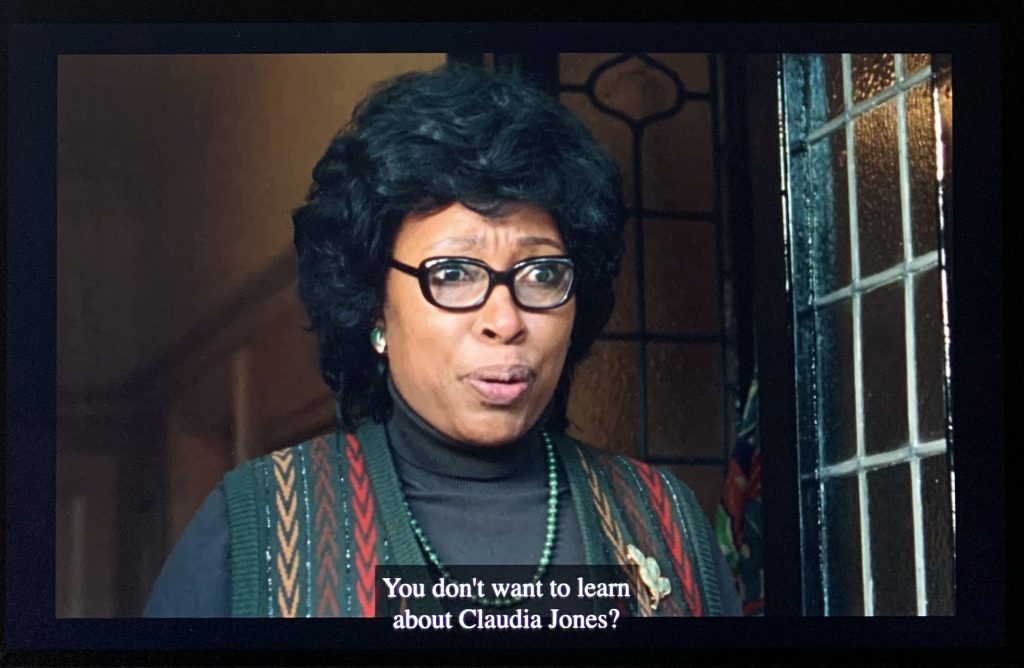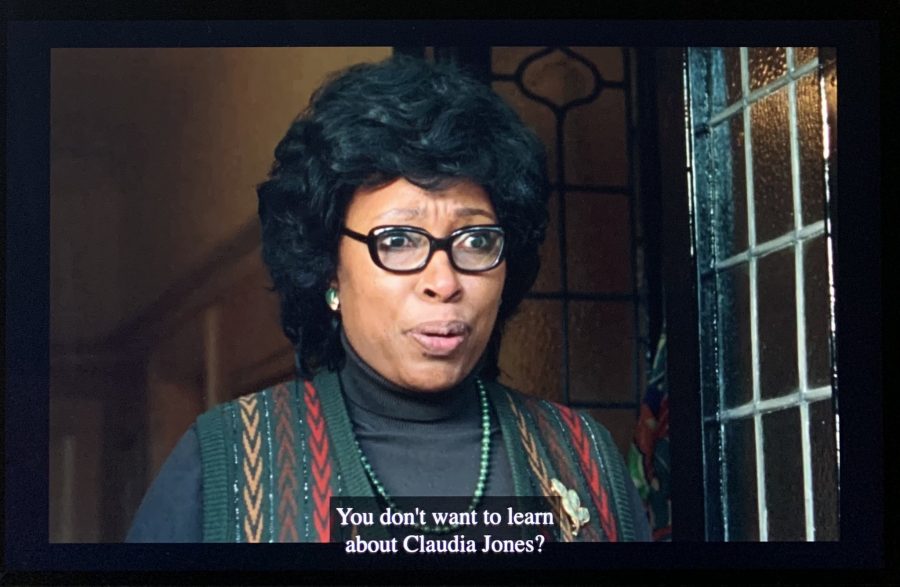
TITLE: Small Axe, a series of five films including Mangrove, Lovers Rock, Red, White and Blue, Alex Wheatle and Education
GENRE: Historical drama
STARRING: A wealth of Black British acting talent, including Letitia Wright (despite her wackass anti-vaxxer bullshit), John Boyega, Sheyi Cole, Kenyah Sandy, Tamara Lawrence, Josette Simon
PRODUCTION COMPANY/DISTRIBUTION/COUNTRY: BBC One/UK, Amazon Original Series
YEAR: 2020
RATING: Small Axe overall – 📢📢📢 out of 5 / Mangrove – 📢📢 / Lovers Rock – 📢📢 / Red, White and Blue – 📢📢📢 / Alex Wheatle – 📢📢📢📢 and Education – 📢📢📢📢📢
WHERE CAN I SEE IT? Amazon Video
Filmmaker Steven McQueen’s film series Small Axe is a long-overdue dramatic representation of the Black British experience from the 1960s to the 1980s.
To consider this an historical drama is apt for the circumstances in which Black British identity came of age en masse. Lots of people will point out, correctly, that there has always been a Black presence in Britain — free and enslaved. That to think Black Britons arrived on the Windrush and not before, ignores the Black presence in the historical, literary and archival records. It’s that kind of short-sightedness that allows government officials to carry out a large-scale witch-hunt to expel Black Britons who lived in the country for decades and served in the military service, staffing hospitals and other essential worker fields.
So that’s the first thing to understand when interpreting McQueen’s films: the Black British lens and experience of racism isn’t the same as the American context.
Yeah, white supremacy travels and asserts itself in nefarious ways, but, imo, a key distinction is citizenship. In the time period Small Axe covers Britons came from the West Indies (just think about that appellation: “west indies,” west of what and whom?) recruited by the British government to rebuild the country after Hitler’s forces decimated it. Appealing to good will and promising opportunity, Black Britons came to the UK as Commonwealth citizens. That’s a very different status and entitlement to rights than the equality of rights that Black Americans are still fighting to achieve today.

Here are a few other things to keep in mind for watching the Small Axe films.
Language: lol, just turn on the subtitles. I already use subtitles even if I’m watching a U.S.-made, English language film. Subtitles will help you immensely with the patois. Lots of definitions allude to patois a “lowly,” which ignores the richness and innovation of languages that mix and meld with another language. For example, you’ll hear kids referred to frequently as “pickney.” I love it because it sounds accusatory, usually along the line of, “Whose pickney dem?” In McQueen’s Education film, which is the best one for it’s clarity, depth and impeccable acting, you will definitely have moments watching and asking, “Whoa, whose pickney these?” as the main character, Kingsley, struggles against larger power structures to have his learning needs met and not relegated to what the English educational authority dared call, “sub-normal.”
Also, get used to the “tooth suck” right now as a form expressing disgust. Weirdly, in the longest film, Mangrove, the emotive sucking of teeth is captioned as “[indistinct noise]” and it’s so much more than that. It definitely feels like, through the rest of the films, this particular emotional nuance if played up, so just prepare yourself.
Instead of reviews of each film, here are my general impression of each because it’s a lot of screen time. If you don’t want to invest several hours, here’s what I recommend viewing:
- Education was the best of the films. The acting was superb and I thought it captured the complications of both white supremacist educational systems that were invested in tracking West Indian students into “special schools” and parents in denial about their children’s learning outcomes in the face of having sacrificed so much. Believing in the myths of the British Empire and Commonwealth have detrimental effects, but there are some amazing uplift in how the film rethinks what education means in a Black-centered c0ntext.

- It was incredibly savvy for McQueen to focus a film on Alex Wheatle. Wheatle grew up, as the British say, “in care,” but whew, it’s not the kind of care anyone should be subjected to. Wheatle was brutalized in foster care, which eventually leads to a prison sentence after the 1981 Brixton riots. His is a great story of finding community and identity through music, sound systems, fashion, and language, but also the lure of the streets is strong. I’m keen to read Wheatle’s young adult and children’s books now.
- Undoubtedly, I liked Red, White and Blue because John Boyega was in it with his fine self. But it’s also an important story about the experience of one of the first Black police officers to join the Metropolitan Police (“the Met”). Across the films there’s a lot of cop violence, which I found triggering in a “fuck these fucking cops” way. That’s the vibe for most of Mangrove, so to arrive at a different, if the same, experience of a Black man integrating a racist institution at that particular moment in history — the rise of neoliberalism and Thatcher’s England — is a story that I’m going to reflect on for a long time. It manages to intimately ask big questions about personal responsibility, collectivity, allegiance and complicity.
- Lovers Rock and Mangrove were my least favorite of the five films. They were ordered as the first two, so I’m glad I didn’t let them stop me from pushing through. Mangrove felt like history homework and, in the interest of being an auteur, McQueen does some repetitive shots and dialogue that had me groaning and impatient. And Lover Rock, set in a house party, was beautiful to behold in costuming, lighting, etc., but there’s some interminable singing that, combined with Mangrove, was like, “Krikey, I get it, I get it! Even in our most abject moments and struggle, Black folx like to sing.” I hate musicals, though, so take that critique for what you will. Lovers Rock was like watching Insecure without a clear story arc.
I’m a completist, but I wish I’d gone ahead and read reviews of all of the films in Small Axe and saved myself some viewing time. Nonetheless, Small Axe was way overdue for the canon of how Black Britons built England and have persevered. ✊🏾🇬🇧

